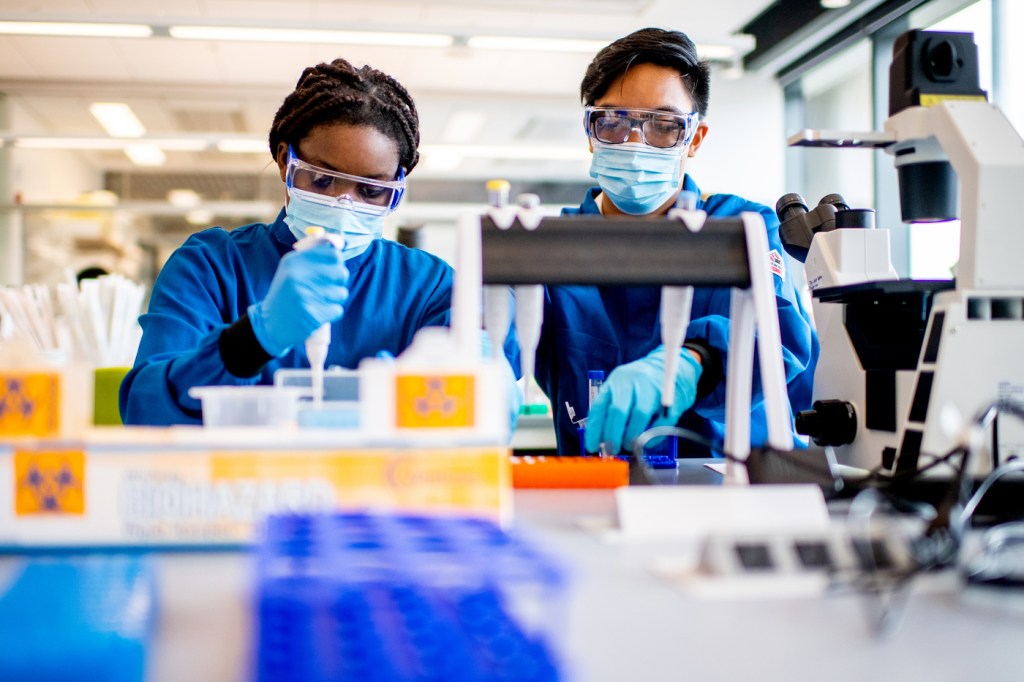Women are credited less than men for their work in the sciences, new research finds

Women who are part of research teams publishing scientific works in labs across the U.S. are less likely to be credited for their contributions than their male counterparts, according to new research out of Northeastern University.
Controlling for, among other things, role, research experience and time spent on a project, researchers found that women are 13% less likely than men to be credited as authors on articles and 58% less likely than men to be credited on patents. Researchers, including Matthew Ross, associate professor jointly appointed to the School of Public Policy & Urban Affairs and the Department of Economics at Northeastern University, analyzed two separate datasets during the research.
The first included large-scale administrative data from research teams, their scientific output and attribution of credit, which showed that women are “significantly less likely” to be named on published articles or patents compared with their peers. The second included responses from an informal survey of 2,660 men and women about their experiences of authorship—and whether they felt they were discriminated against in not being credited for their work.
“We asked scientists around the country if they had ever worked on a project and hadn’t been named on the paper,” Ross says. “What we found from this completely separate source of data is that female scientists reported contributing to papers they were left off of just as much if not more than men.”

The survey found that women reported feeling as though the reason they were passed over for author slots was because their contributions were underestimated. Additionally, the survey found that women had to work harder than men to earn credits—and did significantly more than men when it came to “conceptualizing the research, curating data, writing, reviewing and editing.”
Ross says the disparity speaks to systemic, “complicated power dynamics” in research labs across the country, where there is not an “explicit set of rules for who is, or should be, awarded credit” for published research.
“There is this kind of implicit bias going on that’s having a significant impact” on women, he says.
To counter that implicit bias, Ross says that the scientific community should be creating rules that force academics and supervisors to think about who’s contributing, and in what ways.
There has been a movement to standardize the practice of crediting researchers in scientific publications. That shift is centered around a “contributorship” model instead of an authorship model that recognizes the contributions of all involved—not just those engaged in writing and revision.
The research team included collaborators at the University of Pennsylvania, the National Bureau of Economic Research, Boston University, Ohio State University and New York University.
“Originally what we were interested in was what’s called the production function of science,” Ross says. “The other way you might think about that is you have research labs conducting experiments and producing patents and publications, and those labs are hiring grad students, research assistants and other faculty members, etc. What we did was try to quantify the inputs and the outputs of the scientific process.”
In gathering that initial information, Ross says that what stuck out to his team was the stark disparity between men and women in the dataset.
The researchers note that it is well-documented that women are vastly underrepresented in scientific, or so-called “STEM,” fields. Ross says he thinks the research findings are “particularly important because if you want to have more women in leadership positions … in STEM … and if women aren’t being credited for their work, then it makes it harder for them to advance into those leadership roles.”
For media inquiries, please contact media@northeastern.edu






